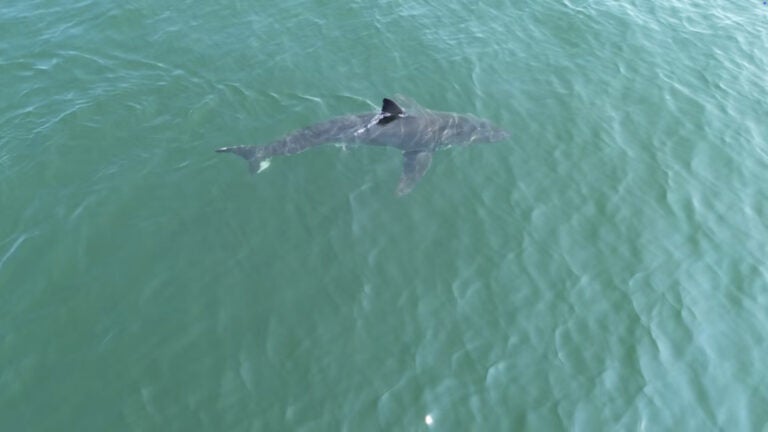
"New data shows that great white sharks are spending more time in the chilly waters off New England and Canada's Atlantic coast. That means boaters, beachgoers and fishermen who spend time in the northern waters are learning to live with the predators made famous by the movie "Jaws" 50 years ago. Sightings of the sharks are up in places like Maine, where they were once very rarely spotted."
"93 great white sharks identified off Maine from 2020 to 2024 The Maine Department of Marine Resources has been monitoring great white shark activity in the Gulf of Maine since 2020. The department has said it intends to use the data to better understand white shark distribution off the state's coast. Nineteen unique white sharks were recorded in 2024 on 47 unique dates, the department reported."
"Nearly 2.5-fold increase in detection of white sharks off Nova Scotia The number of white sharks detected off Halifax, Nova Scotia, increased about 2.5 times from 2018 to 2022, according to a paper published in May in the journal Marine Ecology Progress Series. Even farther north, the number detected in the Cabot Strait that separates Nova Scotia and Newfoundland increased nearly four times over, the paper said."
Great white sharks are spending more time in chilly waters off New England and Canada's Atlantic coast, with sightings rising in Maine where they were once rare. The Maine Department of Marine Resources has monitored white shark activity since 2020, identifying 93 sharks from 2020 to 2024 and recording 19 unique individuals on 47 dates in 2024. Scientists link increased sightings to greater availability of seals, the sharks' prey. Detection rates off Halifax, Nova Scotia, rose about 2.5 times from 2018 to 2022, and Cabot Strait detections increased nearly fourfold. Fatal shark bites remain exceedingly rare.
Read at Boston.com
Unable to calculate read time
Collection
[
|
...
]